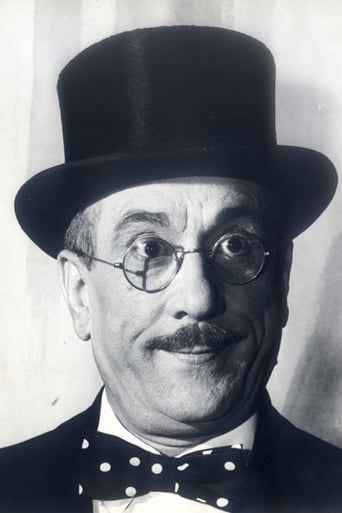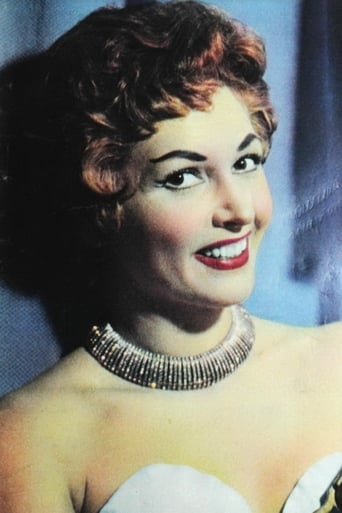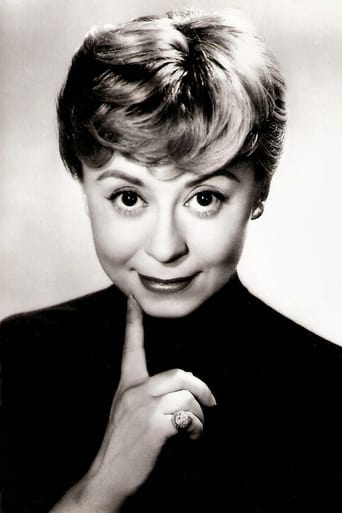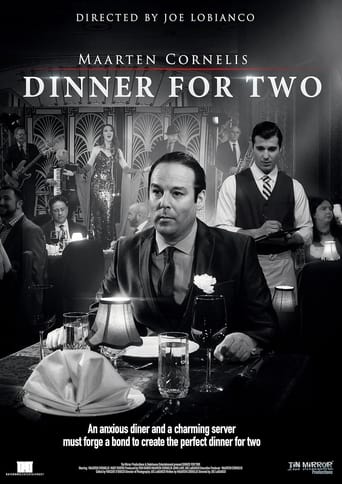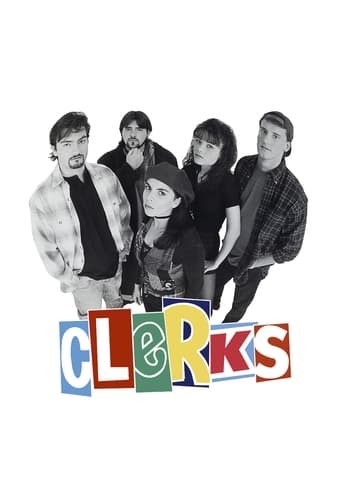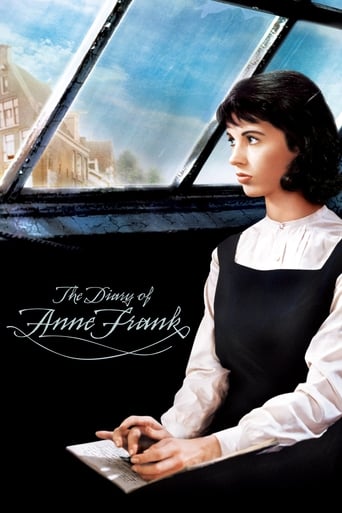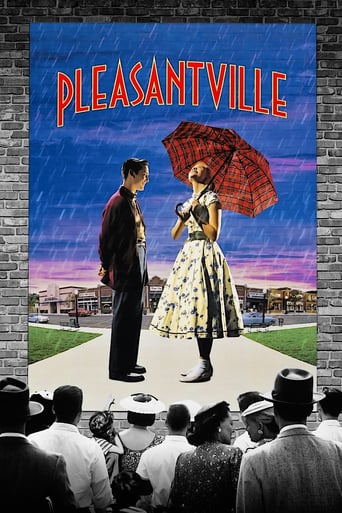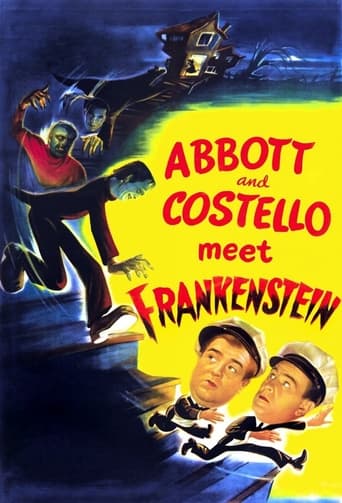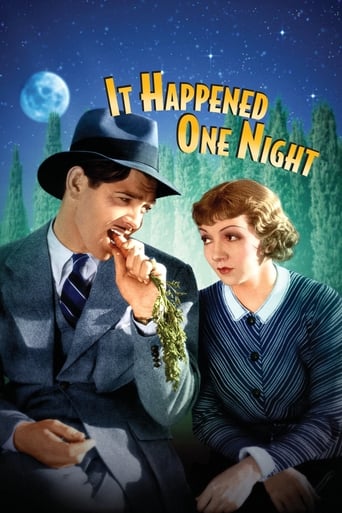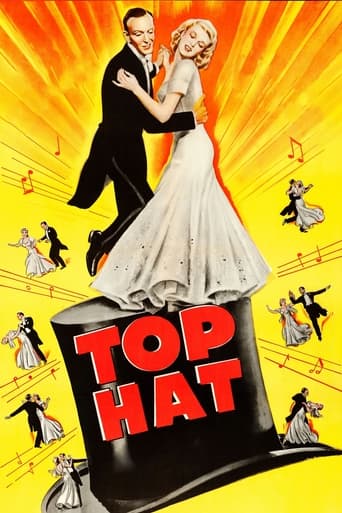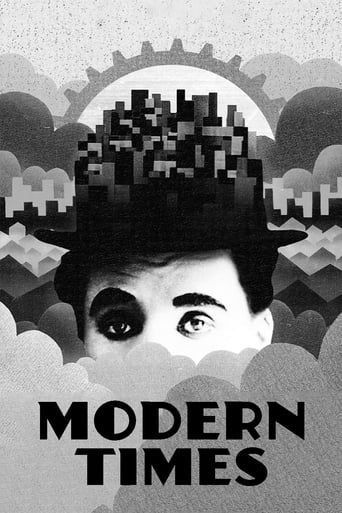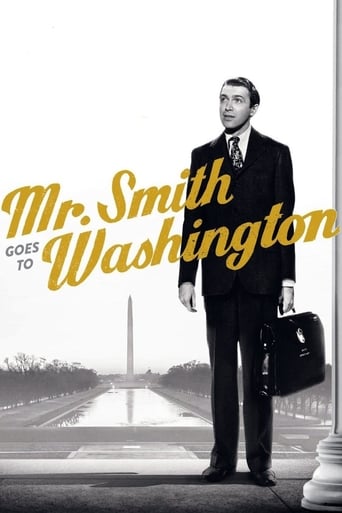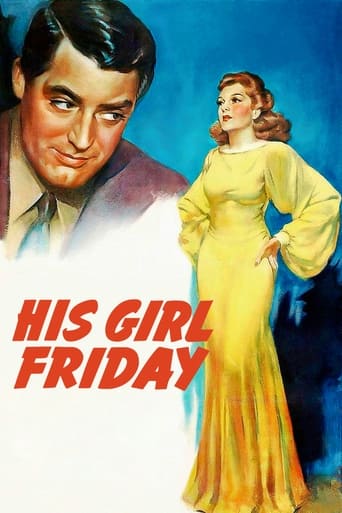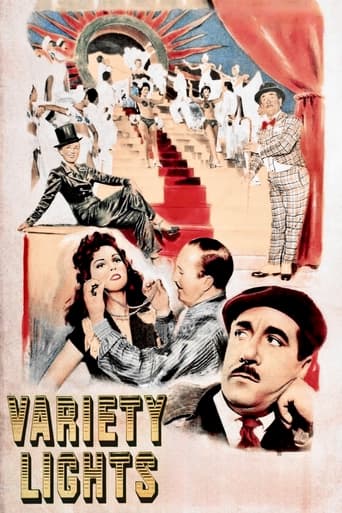
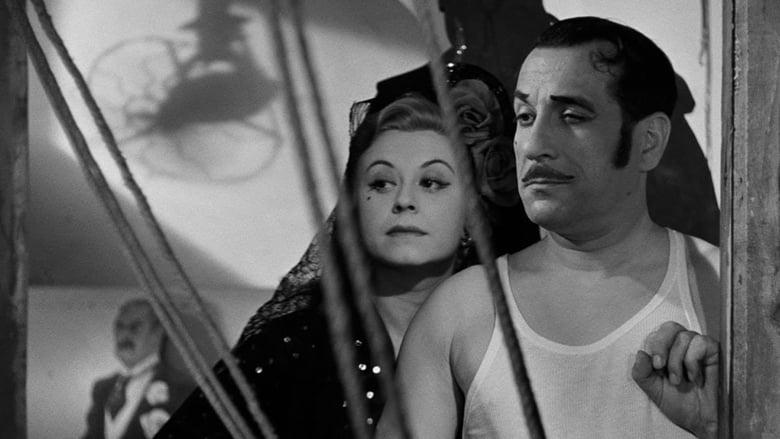
Variety Lights (1950)
In Italy, Checco Dal Monte manages a troupe of traveling performers with plenty of heart but minimal talent. At a small town engagement, he encounters the starry-eyed, gorgeous Lily Antonelli, and hires her as a dancer on the show. Vivacious Lily quickly sells out crowds and earns the resentment of Checco's mistress, Melina Amour, but the fledgling performer has far bigger ambitions and soon sets her sights on a higher-profile role.
Watch Trailer
Cast


Similar titles
Reviews
Intense, gripping, stylish and poignant
It's fun, it's light, [but] it has a hard time when its tries to get heavy.
The movie's neither hopeful in contrived ways, nor hopeless in different contrived ways. Somehow it manages to be wonderful
While it is a pity that the story wasn't told with more visual finesse, this is trivial compared to our real-world problems. It takes a good movie to put that into perspective.
Very good after so many years, like an old good wine. Probably the best role of Peppino De Filippo. A beneficial "workout" for a very young Giulietta Masina, before becoming Gelsomina in "La Strada" and Maria 'Cabiria' Ceccarelli in "The Nights of Cabiria", directed by the same huge Fellini. For Fellini, is the first film he directs, together with Alberto Lattuada. The beautiful Carla Del Poggio, Lattuada's wife in real life, stands in the role Liliana 'Lily' Antonelli. All the actors, although not big names of the Italian cinema, are very talented. The music is not signed yet by Nino Rota, but by Felice Lattuada. A very good film, to be seen at any time, again and again. Watch for a very young Vittorio Caprioli in the role of The Night Club Comic.
This film was co-directed by Fellini and is one of his earliest works (his first directing, though he'd written some scripts for earlier films). Most of his films through the 1950s were very straight forward dramas and many of them were extremely touching and unforgettable. This movie fits in very nicely with these films such as THE WHITE SHEIK, I VITELLONI and LA STRADA. If you are looking for the symbolic Fellini like in 8 1/2 or the weird Fellini such as in SATYRICON or CASSANOVA, then this movie might just leave you flat because it is such a "normal" film. As for me, this is NOT a bad thing, as I have long preferred his earlier directorial work. It's not as complicated or confusing as his later films but also shows amazing style and grace--as well as a great ability to create touching characters.This simple film is about a 4th-rate traveling variety show. They are perpetually broke and most of this is due to the group's distinct lack of talent. Despite this, they have a certain pride in their work and some see themselves as artists--though their audiences thought otherwise. Into this rather bleak existence comes a young and seemingly naive young woman (Lily) who wants to be a star. Unlike the audience, Lily is captivated by the actors and longs to join them. The only one in the group who seems interested in having her join them, though, is the troop's director--and it's only because the lady is so young and shapely. Despite the lady's lack of experience, when she does make her debut it is a success--mostly because the men in the audience liked to see her in various stages of undress.Since the group is now a success, the director sees his new ingénue as his ticket to fame and he no longer pays attention to his long-time girlfriend (played by Fellini's wife, Giulietta Masina). He puts all his creative energy into marketing Lily and his efforts are pretty much wasted--as Lily is much better in marketing herself since men go mad when they see her on stage. Eventually, and not surprisingly, Lily outgrows the silly old director and he's left with no one, as his traveling troop left him because they were tired of being ignored. What happens next you'll have to see for yourself, but the film is an excellent and interesting character study--not so much of Lily, but of the foolish director.Well acted, interesting and fascinating--this is a lovely film worth your time.
If you enjoy Fellini's earlier films, Nights of Cabiria and La Strada, specifically, Variety Lights will please you. A sweet-hearted film not much in the vain of Italian Neorealism (Nights of Cabiria and La Strada were more like the neorealistic classics), but more like the poetic realism of 1930s French cinema, Variety lights is straightforward, unlike Fellini's later films, for instance, La Dolce Vita, and very enjoyable. It never impresses as deeply as most of Fellini's masterpiece, but, hey, it was his earliest directorial effort. You also have to see it, Fellini lovers, for Giulietta Masina's supporting role; it gives you a hint of her later masterful roles. 8/10
In approaching any film of Fellini's, it is important not to clump his style in the same field of other European 'arthouse' filmmakers such as Bergman, Godard, Antonioni or even Tarkovsky.From what I understand after viewing a few of his films [namely 'La Strada', 'La Dolce Vita', 'Nights of Cabiria' and now 'Variety Lights'] Fellini draws deceptively simple metaphors and contexts from banal characters often at times, for instance Quinn as the strongman in "La Strada" who exploits the resources and emotions of a simple-minded farm girl and then finds his life imbued with a terrible guilt upon hearing of her death. He knows now that physical strength can no longer be a shield that he wields when life throws him the challenge of reaching out and caring. This is all delicately displayed by Fellini who basically draws these characters with very modest lives and shows their gradual moral breakdown. Unlike Bergman who will use intense, ambiguous and overtly intellectual dialogue showing a couples' slow disintegration, or Antonioni who will use a pantomimed tennis match to illustrate the uncertainty of an artist's future, Fellini simply gives us a glimpse into a common person's vocation and relates it to a much broader social and existential complex. I consider his early work to be representative of modern day filmmakers with a similar style such as Hal Hartley and Jim Jarmusch.In "Variety Lights" we are given a tale of small-time musicians, dancers, singers, and one naive but well-meaning owner who will do anything to get ahead in life and make his troupe of entertainers an instant success, eventually turning to the wrong people for assistance. This is all basically the back-drop of the owner's floundering marriage, which basically comes to a screeching halt near the end when he begs her for money to take another stab at the show once he's broke. The wife becomes less an endearing necessity of one man's livelihood and more an impetulant cashcow of sorts.The story is brilliantly written and touching and not overwrought in pretentious 'arthouse' silliness. This is why Antonioni ran out of steam shortly after "Blowup", he began to choke on his own tedious style. "Variety Lights" is not among Fellini's best films but there is nothing shameful about this, his directorial debut.Apparently Fellini fell into the mix of more ambiguous tones toward the mid-60's, which is fine. I'm all for experimentation so long as it maintains the delicate balance between art and bloated ambiguity.


